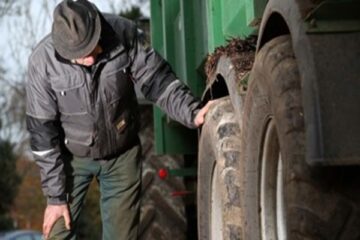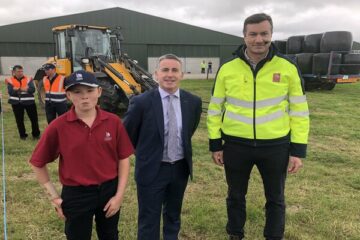There is no doubt electricity has contributed to greater efficiency in farming but what of its dangers?
Operating electricity safely on your farm is paramount to your safety and of others to avoid injury.
According to ESB Networks, the top seven electrical hazards on farms are; fallen electricity wires, wiring installation, portable tools, bonding and stray voltage, electric fences, stand-by generators, machinery and high loads
Under no circumstances should you:
- Use domestic-type sockets, plugs, switches, etc. in farm buildings.
- Continue to use faulty equipment or circuits; if in any doubt switch off and call an electrical contractor.
- Extend cables or flexes by twisting wires together and taping over.
- Route wiring or trailing leads where they can be damaged, e.g. through corrugated sheeting.
- Allow trailing leads to become a permanent part of an installation.
- Connect any portable tools, de-horners or infra-red lamps into lampholders or through lighting circuits.
For safety reasons in dealing with electricity on farms ESB Networks advises:
- Do ensure that everyone on the farm is conscious of the need to be careful when using electricity.
- Do have regular inspection and maintenance of your electrical installation carried out by a competent person.
- Do contact an electrical contractor when in doubt about the safety of equipment or the installation.
- Do check portable electric tools and particularly their flexible leads and plugs, for any defects before use.
- Do switch off, lock off or unplug equipment before starting any maintenance or repair job.
- Do ensure that all electrical equipment and fittings are designed for farm use in accordance with ETCI Rules.



